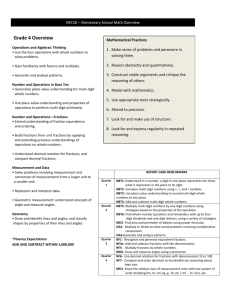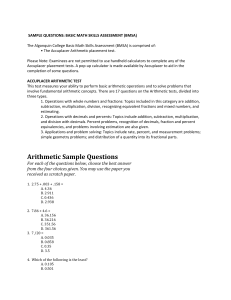4th Grade - Harrison Public School
advertisement
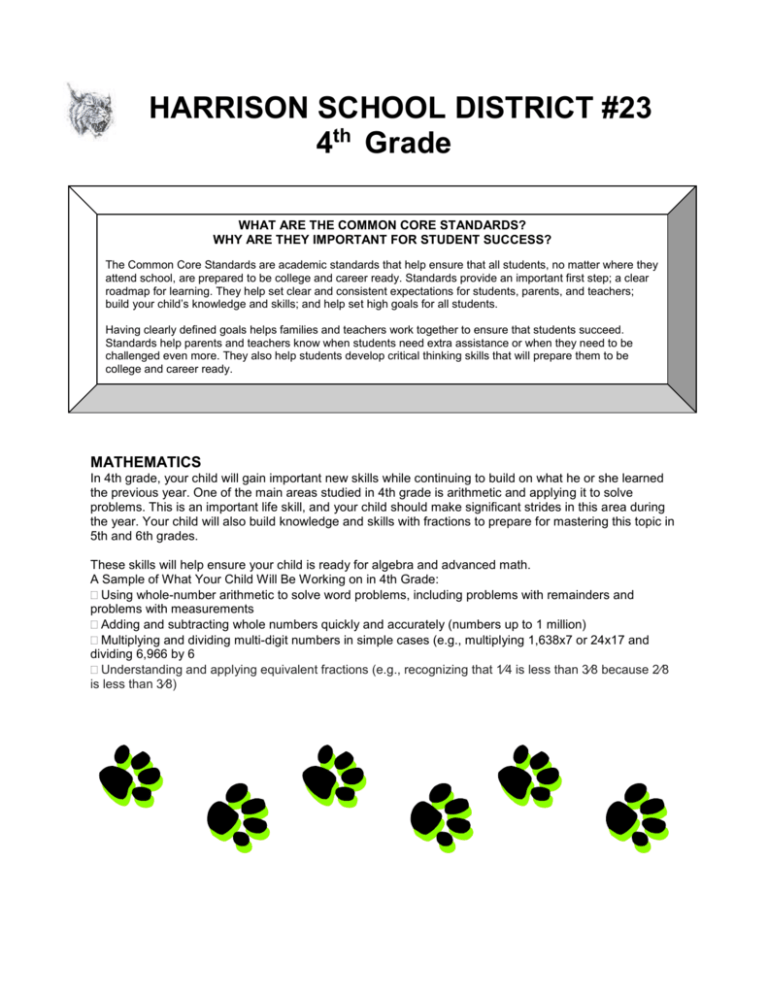
HARRISON SCHOOL DISTRICT #23 4th Grade WHAT ARE THE COMMON CORE STANDARDS? WHY ARE THEY IMPORTANT FOR STUDENT SUCCESS? The Common Core Standards are academic standards that help ensure that all students, no matter where they attend school, are prepared to be college and career ready. Standards provide an important first step; a clear roadmap for learning. They help set clear and consistent expectations for students, parents, and teachers; build your child’s knowledge and skills; and help set high goals for all students. Having clearly defined goals helps families and teachers work together to ensure that students succeed. Standards help parents and teachers know when students need extra assistance or when they need to be challenged even more. They also help students develop critical thinking skills that will prepare them to be college and career ready. MATHEMATICS In 4th grade, your child will gain important new skills while continuing to build on what he or she learned the previous year. One of the main areas studied in 4th grade is arithmetic and applying it to solve problems. This is an important life skill, and your child should make significant strides in this area during the year. Your child will also build knowledge and skills with fractions to prepare for mastering this topic in 5th and 6th grades. These skills will help ensure your child is ready for algebra and advanced math. A Sample of What Your Child Will Be Working on in 4th Grade: Using whole-number arithmetic to solve word problems, including problems with remainders and problems with measurements Adding and subtracting whole numbers quickly and accurately (numbers up to 1 million) Multiplying and dividing multi-digit numbers in simple cases (e.g., multiplying 1,638x7 or 24x17 and dividing 6,966 by 6 Understanding and applying equivalent fractions (e.g., recognizing that 1⁄4 is less than 3⁄8 because 2⁄8 is less than 3⁄8) ENGLISH LANGUAGE ARTS AND LITERACY Building the stamina and skills to read challenging fiction, nonfiction, and other materials is fundamental in 4th grade. Your child will continue to learn about the world as well as build vocabulary skills by reading more complicated stories and poems from different cultures and a range of books on history, science, art, and music. Fourth grade students also will make important strides in their ability to explain plainly and in detail what a book says — both explicitly and what is implied from its details. By 4th grade, your child will be writing effective summaries, book reports, and descriptions of characters or events that use correct grammar and punctuation. A Sample of What Your Child Will Be Working on in 4th Grade: Describing the basic elements of stories – such as characters, events, and settings – by drawing on specific details in the text Paying close attention to key features of informational books and articles: these include understanding the main and supporting ideas; being able to compare and contrast information; and explaining how the author uses facts, details, and evidence to support particular points Comparing ideas, characters, events, and settings in stories and myths from different cultures Writing summaries or opinions about topics supported with a set of well-organized facts, details and examples Independently conducting short research projects on different aspects of a topic using evidence from books and the Internet Paraphrasing and responding to information presented in discussions, such as comparing and contrasting ideas and analyzing evidence that speakers use to support particular points Reporting orally on a topic or telling a story with enough facts and details Writing complete sentences with correct capitalization and spelling Relating words that are HERE ARE SOME MAIN TALKING POINTS RELATED TO THE CCSS THAT PERTAIN TO YOUR CHILD’S CLASSROOM. When you talk with your teacher, don’t worry about covering everything. Instead, keep the conversation focused on the most important topics. In 4th grade, these include Comprehending a range of grade-level stories, poems, and informational texts such as biographies, articles, or guidebooks about history, science, or the arts Building understanding of relationships between words and nuances in word meanings – synonyms, antonyms, idioms – and using this knowledge to convey ideas precisely Doing arithmetic and solving word problems with multi-digit numbers Doing arithmetic and solving word problems with fractions Ask to see a sample of your child’s work. Ask the teacher questions such as: Is this piece of work satisfactory? How could it be better? Is my child on track? How can I help my child improve or excel in this area? If my child needs extra support or wants to learn more about a subject, are there resources to help his or her learning outside the classroom? HOW YOU CAN HELP YOUR CHILD AT HOME English Language Arts & Literacy Urge your child to use logical arguments to defend his or her opinion. If your child wants a raise in allowance, ask him or her to research common sense allowance systems and, based on that research, explain reasons why, supported by facts and details. Talk about the news together. Pick one story in the news, read it together, and discuss with your child what it means. Keep books, magazines, and newspapers at home. Make sure your child sees you reading Mathematics Look for “word problems” in real life. Ask your child to compare numbers using phrases like “times as much.” For example, if the family cat weighs 8 lbs. and the family dog weighs 56 lbs., how many times as much does the dog weigh? Ask your child to help you compare fractional amounts — for example, if one recipe calls for 2⁄3 of a cup of oil, but another recipe calls for 3⁄4 of a cup of oil, which recipe calls for more oil? (In 5th grade, your child will learn ways to determine just how much more oil.) Thanks to the National PTA for providing information included in this handout. For More Information go to http://www.corestandards.org/ & http://www.smarterbalanced.org/
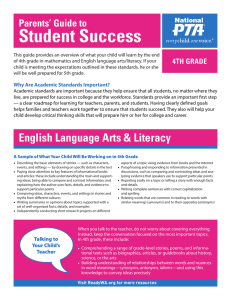
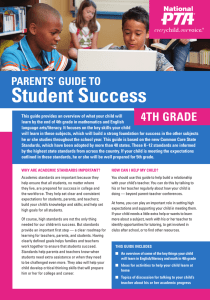
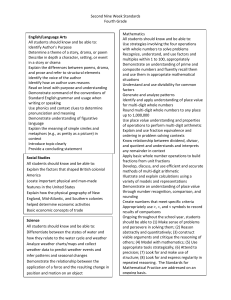
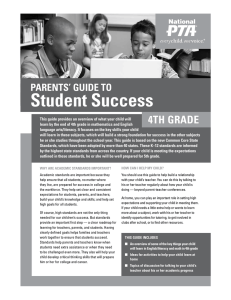
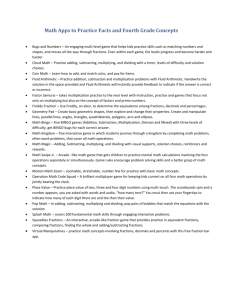
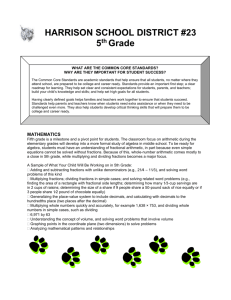
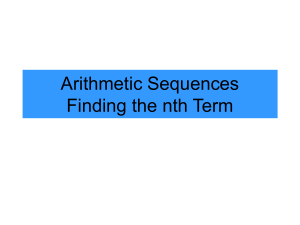

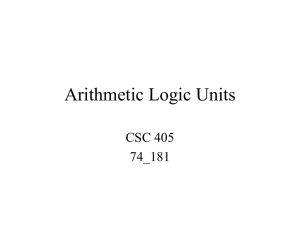
![Information Retrieval June 2014 Ex 1 [ranks 3+5]](http://s3.studylib.net/store/data/006792663_1-3716dcf2d1ddad012f3060ad3ae8022c-300x300.png)
